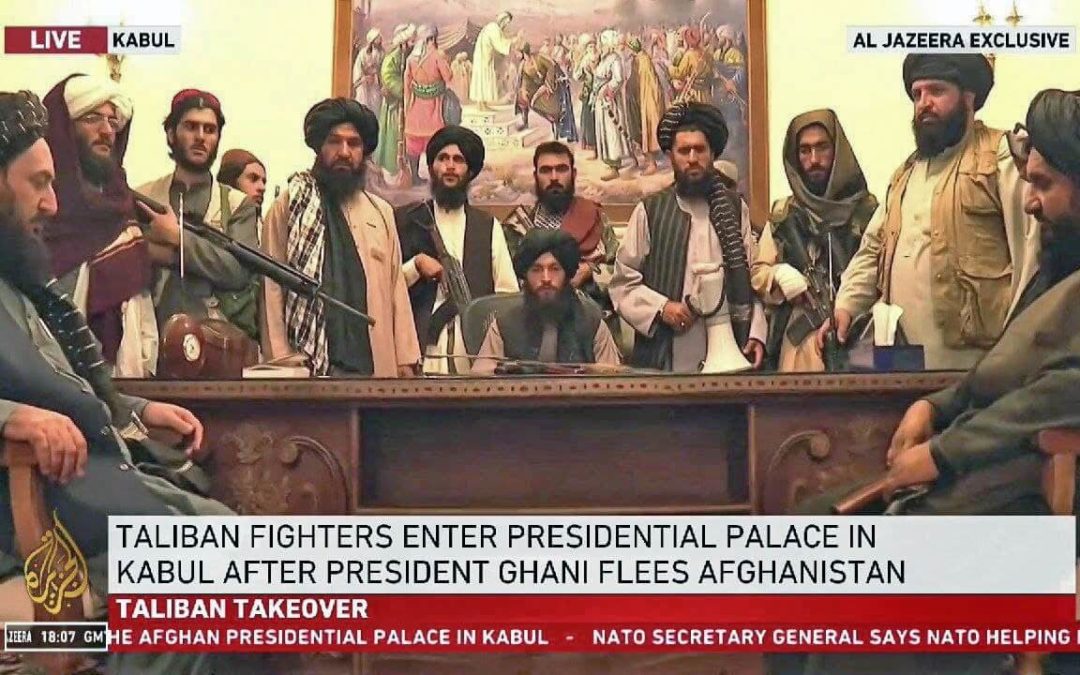In the age of technology, the illusion that there are protocols backed up by a resource base allowing solving any social issue, including crisis problems, has grown stronger. The idea of the so-called “color revolutions” is a purely technological act emasculated into routine sequences.
And if so, there is an equally persistent illusion that the spontaneous mass social transformations changed to cold political technology surgery. And since you a revolution can be created, thus, it can be extinguished in the same way. All that is needed is the creation of an appropriate counter-protocol.
The Taliban’s victory demonstrates that nothing is over yet. When there is an idea supported by the masses the technology fails. At least it doesn’t achieve the results required in the instructions.
The Taliban in its first iteration, and even more now, in the second iteration, is an absolutely classical national liberation movement. The Taliban’s clerical ideology, which is customary to pay main attention to, does not in any way negate the ultimate goal of the movement – the construction of the national state of the Islamic Emirate of Afghanistan. According to international canons, the national liberation movement is the primary stage of the national state. And, by the way, it is precisely for this reason that the Palestine Liberation Organization is, although incomplete, but already a member of the UN. Palestine does not yet exist, but it already has membership in the UN. It will be very curious when the Taliban will take its place in this organization, even if it is, of course, itself already only a pale shadow of a full-fledged international platform.
The Taliban is also something other than just a national liberation movement. The movements of the previous years, which emerged en masse after the Second World War, fought against colonial rule and for the creation of national states. Today, the era of anti-neo-colonial struggle has begun, in which one has to fight not only with the colonialists, but first of all with their proxies – formally national, but in fact collaborationist governments and regimes.
By the way, the international rhetoric of the Islamic State was built on the principle clearly dividing its opponents into “near” and “distant” enemies. Collaborating regimes were called “near” (and at the same time priority) enemies, and the “distant” enemies were named their masters, the real colonialists.
Within the framework of the same attitude, for the Taliban, the key adversary was the Kabul regime. While the occupiers were a secondary and not even the main adversary, to negotiate with, talk to, look for compromises (within the framework of basic settings). There is nothing to talk about with collaborators. Now, of course, the Taliban are declaring amnesty, forgiveness, and more. But in fact, cooperation with the Kabul regime will inevitably be an aggravating circumstance. Perhaps even fatal. In a sense, the Taliban are right – any cooperation with the criminal regime is inevitably direct complicity and the phrase “I am a soldier, I followed orders” does not work much better in the East than in the West.
The Taliban is one of the first national liberation movements of modern times, able to come to power on their own (and any talk about external support does not exclude its international identity, the subjectivity status). How will they be able to dispose of it is another question, and not the most obvious one. But the Taliban managed to take the subjectivity status on its own. Taliban has kept it for several decades. This is what distinguishes it favorably, for example, from the Muslim Brothers, who, in any country where they eventually managed to come to power, did not really manage to demonstrate anything precisely because they had no subjectivity status anywhere. Everywhere they were (and are) they are the conductors of other’s interests. This means that they do not have mass popular support and are forced to work in the field of political technologies, driving themselves into a deterministic space of decision-making. One unnecessary step and…



